I’m all the time making an attempt to hurry up WordPress, ideally in a approach that’s additionally low cost and doesn’t require any coding.
On this simple information, I’ll present you ways I’m utilizing perfmatters ($24.95 for a single website license), a light-weight WordPress efficiency plugin, to disable unused plugins on pages and posts to considerably velocity up web page load time.
I’ll present you my web page load speeds earlier than and after organising perfmatters so you possibly can see how a lot my velocity improves.
Let’s get to it.
Why WordPress plugins gradual your web site down
Not all WordPress plugins are created equally, however even the best-coded plugin will add loading time to your website. And, right here’s the scary half, plugins will load on each single website web page, even should you’re not utilizing their performance on that web page!
Living proof: a contact kind plugin like Contact Form 7. You’ll probably solely be utilizing it in your ‘Contact Me’ web page, however it’s going to nonetheless load on all different pages, including pointless kilobytes to the web page measurement and slowing it down.
Whereas eradicating plugins utterly will clear up the issue, you most likely nonetheless wish to use some so as to add performance to your website. The answer? Use a script supervisor to manage which plugins load on every publish and web page.
What’s perfmatters?
I’ve reviewed perfmatters earlier than, however to summarize: it’s a really light-weight (that means it’s a small file and won’t load any JavaScript on the frontend) plugin that permits you to toggle on a bunch of straightforward settings that may velocity up your website, like disabling emojis and XML-RPC.
It additionally has a robust script supervisor that I’ll clarify methods to use beneath.
perfmatters was created by brothers Brian and Brett Jackson, and actually they do a a lot better job of explaining the advantages of the plugin than I can, so I like to recommend you learn the function abstract they wrote to be taught extra.
perfmatters prices $24.95 for a single website license and 1-year of updates (and should you examine the positioning, you is likely to be fortunate sufficient to discover a low cost coupon, trace trace!). You possibly can nonetheless preserve utilizing the plugin should you select to not renew your license on the finish of the 12 months. In my expertise, the worth is nicely value it should you’re searching for a simple approach to enhance WordPress website velocity.
perfmatters’ Script Supervisor
The perfmatters function I’m going to point out you methods to use right here is the Script Supervisor. You activate it by toggling it on within the perfmatters settings web page:
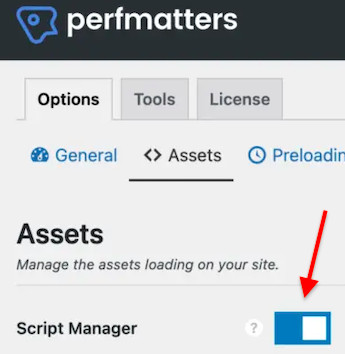
Script Supervisor will then permit you to management which plugins load on any web page or publish in your website. I’ll present you methods to set it up beneath.
The best way to disable plugins on sure posts and pages
First up, it’s essential purchase and set up perfmatters should you haven’t already.
Then, activate the “Script Supervisor” function as proven within the screenshot above (Dashboard Settings > Perfmatters > Choices > Property).
Whereas logged into your WordPress website, navigate to any web page or publish (on the frontend, as a consumer would see it), together with your homepage.


Click on the “Script Supervisor” button within the prime admin bar and also you’ll enter the settings for that particular web page.
In the event you’ve hidden your admin bar, you possibly can append any URL in your website with “?perfmatters” as a substitute:
https://area.com/web page/?perfmatters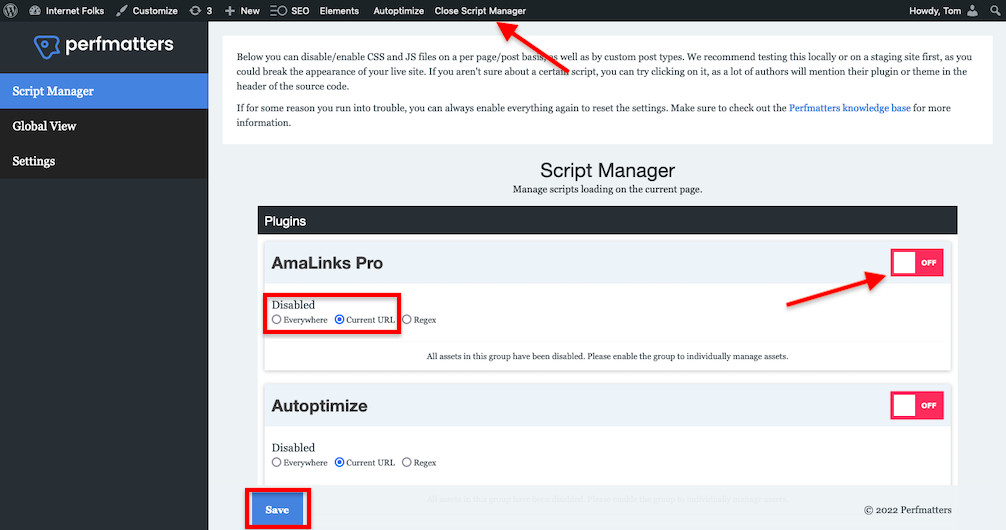

You’ll see an inventory of all of the plugins loaded on that web page; click on to toggle off any you aren’t utilizing on and choose the “Present URL” radio button to make sure you’re not switching them off throughout all the website. Hit “Save” after which “Shut Script Supervisor” whenever you’re finished.
You may as well get much more particular and flip off particular css and js scripts from any plugin on a web page by web page foundation.
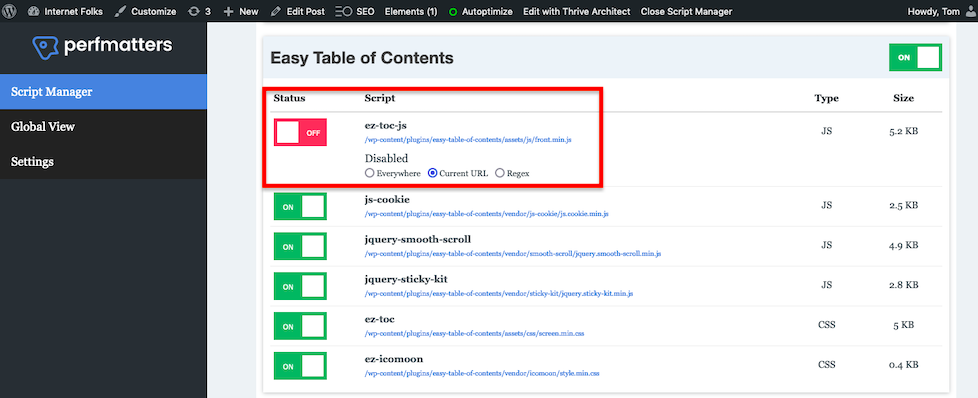

perfmatters will present you the sort and measurement of every plugin script, so you possibly can see which of them are weighing you down probably the most.
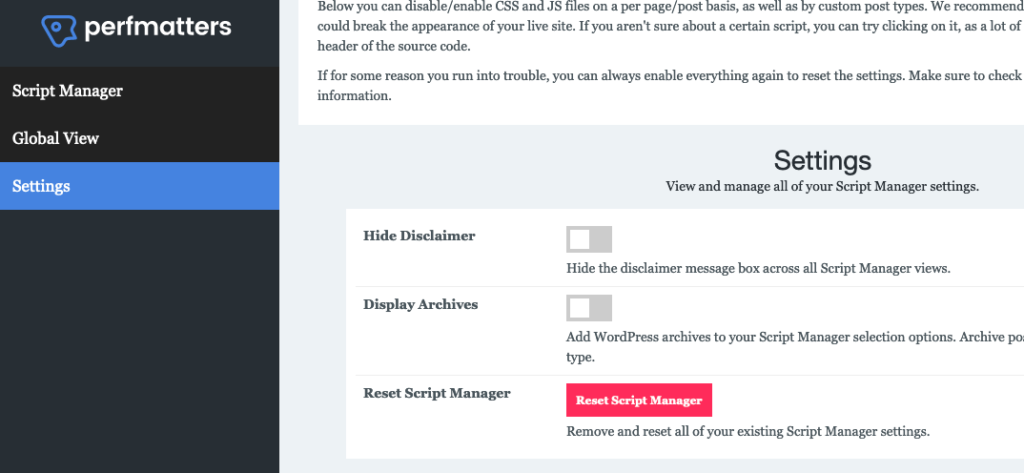

It’s greatest to experiment with turning scripts on and off on a staging or backup website as you may break one thing. In the event you go flawed, perfmatters has a giant purple reset button so you possibly can go sort things and take a look at once more.
How a lot quicker will my website get?
It relies on what number of plugins you’re utilizing, how massive their scripts are, and should you’re utilizing all their performance on each web page. Even a well-optimized website (like mine, if I’ll say so myself!) will be capable to shave at the very least 1 second off web page load instances by decreasing the scripts loaded on a web page.
I’ll present you the earlier than and after loading instances of a weblog publish of mine.
Right here’s the cellular loading time earlier than (examined utilizing Google’s PageSpeed Insights tool):
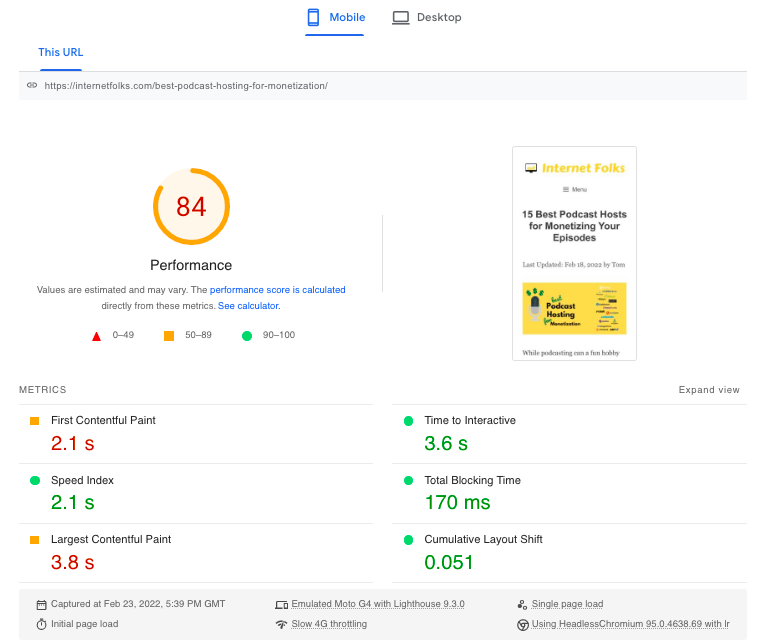

First Contentful Paint (the time it takes for the primary factor of the web page to load) was 2.1 seconds, and Largest Contentful Paint (the overall web page load time) was 3.8 seconds.
And after eradicating unused plugin scripts from the web page:
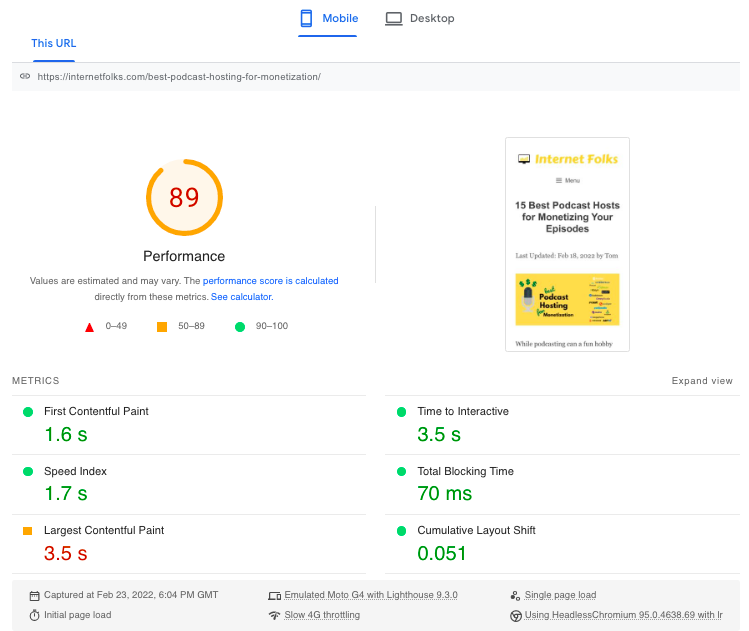

FCP went right down to a a lot higher 1.6 seconds. LCP remains to be a bit gradual at 3.5 seconds.
I had disabled CSS and JS minification through the free plugin Autoptimize for this take a look at; re-enabling it gave me even quicker speeds:
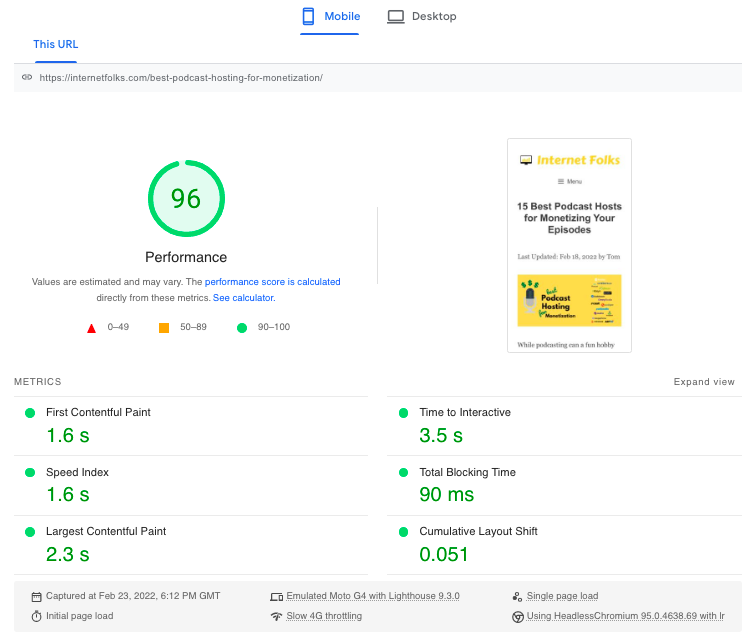

I’m actually happy with this outcome. I’m planning to change all my tables from TablePress to Gutenberg’s block editor so that may enable me to take away much more scripts and enhance speeds even additional within the close to future. Optimizing WordPress for velocity is addictive!
In the event you’re undecided how your website will profit from eradicating plugin scripts from some posts, I like to recommend you run a velocity take a look at on PageSpeed Insights and try what number of unused CSS and JS scripts Google thinks you’ve gotten on the web page.
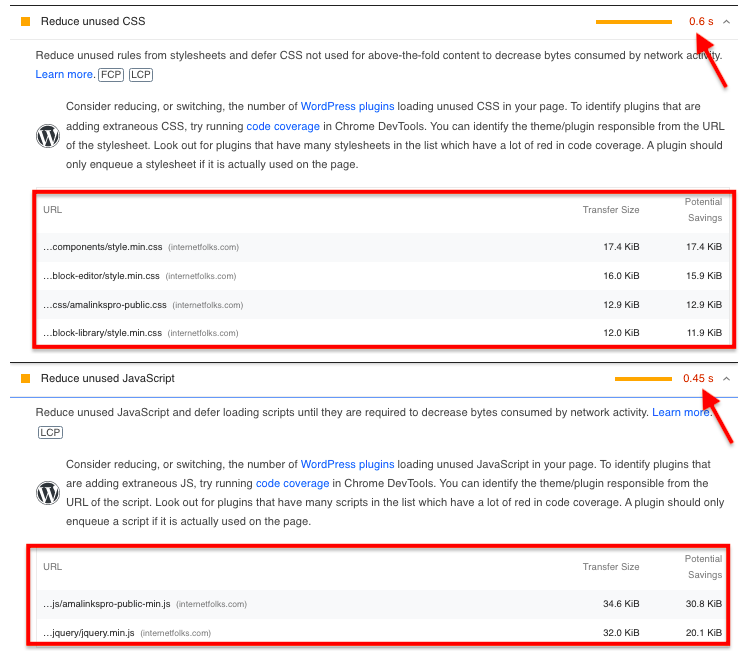

You’ll see an estimate of how a lot time it takes to load these ineffective scripts. That’s the time you’ll save should you use perfmatter’s Script Supervisor to cease them loading within the first place.
For me, perfmatters was nicely definitely worth the 20ish bucks and couple of hours I spent configuring and testing pages. Possibly this information will show you how to get a step additional towards blazing quick WordPress loading instances. Glad optimizing!


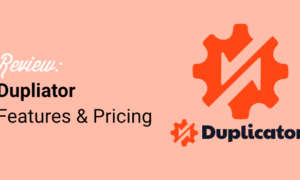
Leave a comment